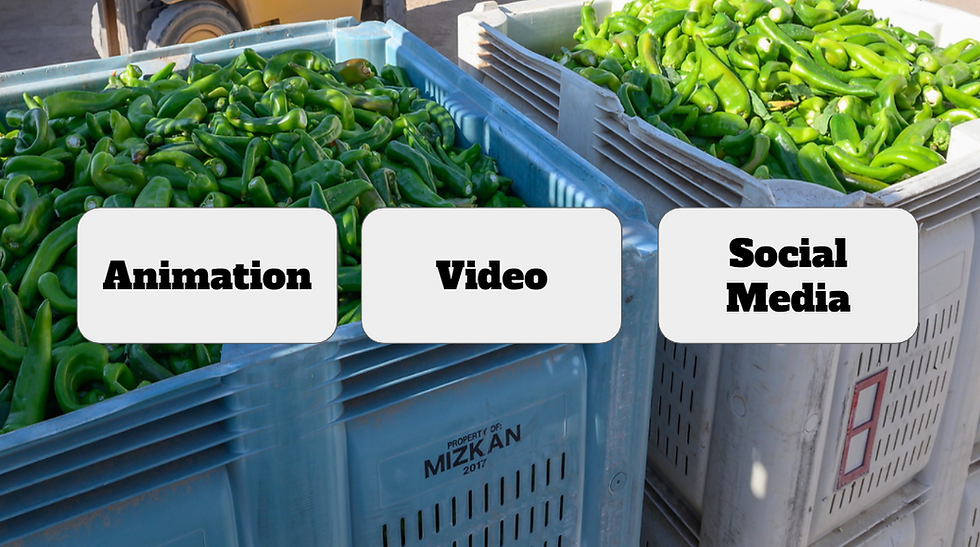Implementing Youth Summer Sessions Online: Impacts of the 2021 Learning Games Lab Think Tanks
- Amanda LaTasha Armstrong and Amy Chacon

- Feb 2, 2022
- 3 min read
Updated: May 25, 2023

Each summer, the Learning Games Lab hosts in-person, half-day, weeklong sessions for youth. During these “Think Tank” sessions, youth are invited to be consultants, where they enhance their skills and knowledge of critically reviewing games, the design process, and evaluating tools in development.
Due to changes in statewide orders caused by the COVID-19 pandemic, educators held sessions fully online using Zoom. Thirteen students entering grades 6, 7, and 8 participated as Games Lab Consultants. Educators modified activities to address the online environment. At the end of the session, educators gathered feedback from consultants and their families to identify the impact of the program.
Implementing Think Tank Activities Online
Critical Review of Games
Educators provided multiple opportunities for youth consultants to play and evaluate digital games. In one activity, youth were assigned to play and critically review digital games when youth gathered as a group synchronously and for homework. Using a list of online games and questions to guide their evaluation of games, youth played and examined games’ audience, context, goals, and content. Then they critically reviewed games based on these areas and additional categories, such as graphics, accessibility, and ease of use. They used notes taken during gameplay and review to create presentations of their reviews to share with peers, which often ended with a large group discussion.

Additionally, educators used the tools Mentimeter and Padlet to prompt thinking and generate conversation about games and gameplay. For instance, using Padlet (a digital interactive whiteboard), youth posted names and descriptions of games they like to play as well as what they care about when reviewing games. Youth responded to questions posted in Mentimeter, where they shared their gameplay experience and reviews of different games. After providing input, youth and educators engaged in discussions on how these tools supported their reflection and articulation of ideas and provided youth opportunities to play and evaluate multiple games to enhance their skills and knowledge.
User-Testing Tools
Critically reviewing existing games provides a foundation for youth to test games in development. Youth conducted user-testing of the final versions of the interactive MyPlate. They played and analyzed the tool in breakout rooms and provided constructive feedback on gameplay and suggestions for improving the interactives. Youth provided input vocally and/or through the chat option.
They also played the Virtual Insect Collection Lab and addressed questions related to the tool's content. Later in the week, they tested Math Snacks games, which were in the process of being updated due to the discontinuation of Flash. Youth played Monster School Bus, Gate, or Ratio Rumble and provided feedback on bugs and other errors as well as what they liked about the games in presentation, Padlet board, and Mentimeter questions.
Designing and Delivering Content

Youth used online and digital tools to produce content to share with peers and educators. Youth created a digital presentation where they shared three things about themselves and games they like to play with peers. Throughout the week, they created short presentations of games they reviewed. For their final project, youth selected a digital tool, such as PowerPoint, Google Slides, or iMovie, to use to pitch a game they recommend peers, educators, or designers play and the reasons. They presented their work on the last day of the session.
Program Impact
On the session’s last day, educators distributed a survey to youth and their parents or guardians to assess the summer program. Survey data indicated that youth found the skills taught in the session to be very useful. Youth described the Learning Games Lab as fun and informative and as a place to play, review and learn about games and where they learn something new everyday. Youth expressed interest in wanting to learn about:
“Media.”
“Coding”
“Play more games and that math can be fun sometimes.”
“Math Snacks”
“Pinning insects”

With the survey for parents and guardians, the data showed adults saw an improvement in a variety of their kids’ skills and found the skills taught in the session to be useful or extremely useful. One respondent described being surprised by their child’s computer skills. Overall, adults reported their child’s experience at the session was “good”. Gathering feedback from youth and their families about their Games Lab experience helped the educators learn what worked with the program and what can be improved.
Conclusion
Educators utilized tools and structured activities for youth to test educational games and interactives, critically review games, and participate in design activities in ways that effectively utilized the affordances of online and digital tools. By using a variety of online and digital tools, youth actively engaged in communicating and collaborating with peers and identified different ways to express their ideas. While there was variation in the implementation of activities, educators still managed to achieve the goals of enhancing youth’s skills and knowledge in reviewing, user-testing, and designing.
Educators for the 2021 session included Amanda LaTasha Armstrong, Amy Chacon, Matheus Cezarotto, and Barbara Chamberlin.
Written By: Amanda LaTasha Armstrong, Games Lab Coordinator and Amy Chacon, Student Aide

